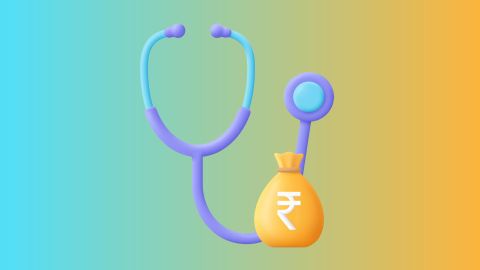Key Traits of Secondary Healthcare Services
Since secondary care usually means specialist services given by doctors outside of GP surgeries, it has some unique features.
- Secondary care services are often provided in a hospital or clinic. Understanding the various types of clinics helps patients access appropriate specialized care facilities.
- These services usually focus on specialities and need a referral from your GP
- Most secondary care services involve advanced medical skills or procedures
Understanding what nurses do in secondary care shows a busy environment needing high skills and wide knowledge. Nurses in secondary care might focus on certain health conditions, specific groups of patients, or complicated treatments.
Let us look at critical care nurses as an example. These nurses work in secondary care and specialise in helping patients with very serious conditions, usually in intensive care units (ICU). They are very skilled at watching and checking patients, noticing changes in their condition, and taking the right actions, including starting life-saving procedures.
Main areas of specialisation
|
Examples of jobs
|
Children's health
|
Children's nurse
|
Cancer care
|
Cancer nurse
|
Heart health
|
Heart care nurse
|
Each speciality has its own unique needs and requires specific skills. Understanding secondary care means more than just knowing what it is. It includes seeing how it fits into the bigger health system, how it connects with other levels of care, and how important it is for patient-focused care and good healthcare delivery.
Examining Secondary Healthcare Treatment Strategies
Nurses working in secondary care use treatment plans designed for their area of expertise. These plans focus on the patient and usually involve a mix of clinical skills, technical know-how, and teamwork.
Treatment plan
|
Role of secondary care nurse
|
After-surgery care
|
Nurses look after patients after surgery, handling pain relief and wound care
|
Cancer care
|
Oncology nurses give chemotherapy, help with radiation treatments, and manage symptoms
|
Teamwork is essential in secondary care, and nurses often work together with other healthcare professionals to form a care team. The nurse's job in the team may include organising patient treatment plans, performing technical procedures, and giving expert bedside care.
Let us look at an example of a diabetic patient. A secondary care plan for this patient might involve an endocrinology nurse, who is a specialist in endocrinology—the branch of medicine dealing with the body's metabolism, hormones, and endocrine system. This nurse would check the patient’s blood sugar levels, give insulin, offer dietary advice, and watch the patient’s overall health. They would also make sure other health problems like heart disease or kidney issues are quickly spotted and treated.
Role of Secondary Healthcare Responsibilities in Nursing
Secondary care nurses have important duties that can differ a lot based on their specialisation, but they usually focus on patient care, medical support, and teamwork.
- Patient care: Secondary care nurses look after patients directly, meeting their physical and emotional needs. They are the main caregivers in hospitals, checking vital signs, giving medication, and helping with daily activities
- Medical support: Often, nurses help diagnose illnesses and watch how patients respond to treatment plans. They might also help with medical procedures and tests
- Teamwork: Nurses are key to the team-based approach in secondary care. They often work closely with other healthcare professionals to make sure patients get complete care
For example, a cardiac care nurse looks after patients with heart problems. They are important in caring for patients after heart surgeries like bypass or pacemaker operations. Their main duties include checking heartbeats, giving medications, providing care all day and night, and teaching patients about their condition.
An interesting part of secondary care nursing is dealing with health crises like pandemics. For example, during the COVID-19 pandemic, many secondary care nurses were on the frontline, giving treatments, looking after patients, and working closely with other healthcare workers to control and manage the spread of the disease.
Knowing their duties, treatment plans, and teamwork shows how important secondary care nurses are in healthcare.
What is the Difference Between Primary Healthcare and Secondary Healthcare?
Understanding the difference between primary and secondary healthcare is essential for appreciating the holistic healthcare system.
- Primary healthcare: The first point of contact for patients, typically involving general practitioners, family doctors, and community health workers.
- Secondary healthcare: Provides specialised care, usually upon referral from primary care providers, involving specialists like dermatologists, cardiologists, and neurologists.
| Aspect |
Primary Healthcare |
Secondary Healthcare |
| Focus |
General health management |
Specialised care for specific conditions |
| Providers |
General practitioners, Nurses |
Specialists like Cardiologists, Surgeons |
| Location |
Local clinics, Community centres |
Hospitals, Specialist Clinics |
| Referral needed |
No |
Yes |
Primary Healthcare
Primary healthcare is the foundation of the health system. It includes preventive, promotive, and curative health services provided by general practitioners. Services include routine check-ups, vaccination drives, and treatment of minor injuries and illnesses. Primary healthcare aims to be accessible to all and often forms the first point of contact in the healthcare chain.
Secondary Healthcare
Secondary healthcare is a level above primary healthcare, dealing with more serious health issues that require specialised expertise. Patients are usually referred to secondary care by their primary care physicians. This level of care involves consultations with specialists and includes more advanced medical procedures and interventions, such as surgeries or specialised diagnostic tests. Some wellness-focused facilities, like a Medical spa, also offer specialised therapeutic treatments under professional medical supervision.
Examples of Secondary Healthcare
Secondary healthcare covers a wide range of specialised services that address complex medical needs beyond routine primary care.
- Specialist consultations: Patients receive care from doctors trained in specific fields such as cardiology, dermatology, orthopaedics, psychiatry, endocrinology, and obstetrics and gynaecology for targeted diagnosis and treatment.
- Acute and hospital-based services: This includes care provided in hospitals or medical clinics, such as emergency treatment, planned surgeries, inpatient care, and urgent care services.
- Advanced diagnostic services: Patients undergo specialised investigations, including medical imaging and pathology tests, to support accurate diagnosis and treatment planning.
- Allied health and rehabilitation: Supportive therapies such as physiotherapy, speech therapy, occupational therapy, and dietetic services help in recovery, rehabilitation, and long-term care management.
Who Needs Secondary Healthcare?
Secondary healthcare is required when medical needs go beyond routine check-ups and call for specialist expertise or hospital-based treatment.
- People with complex conditions: Individuals dealing with illnesses such as cancer, severe infections, neurological disorders, or long-term chronic diseases that require specialist care.
- Those needing specialised procedures: Patients who require surgeries, advanced imaging like MRI or CT scans, or targeted therapies not available in primary care.
- Patients with acute health issues: Cases involving serious injuries, sudden infections, or medical complications that need immediate hospital or clinic-based attention.
- Individuals referred by a primary care provider: Patients whose doctor identifies the need for expert evaluation or treatment beyond primary care capabilities.
Conclusion
Secondary health care forms a crucial link in the healthcare chain by providing specialised care for specific conditions that primary care cannot manage. Whether you are looking to expand your medical practice or provide comprehensive care, understanding secondary healthcare's role is essential. For doctors and healthcare professionals seeking financial support, options like a doctor loan from Bajaj Finance or other healthcare finance solutions can be invaluable in upgrading facilities, purchasing advanced equipment, or managing operational costs. Such loans for professionals are designed to meet the unique financial needs of medical practitioners, ensuring they can deliver quality care without financial strain.





